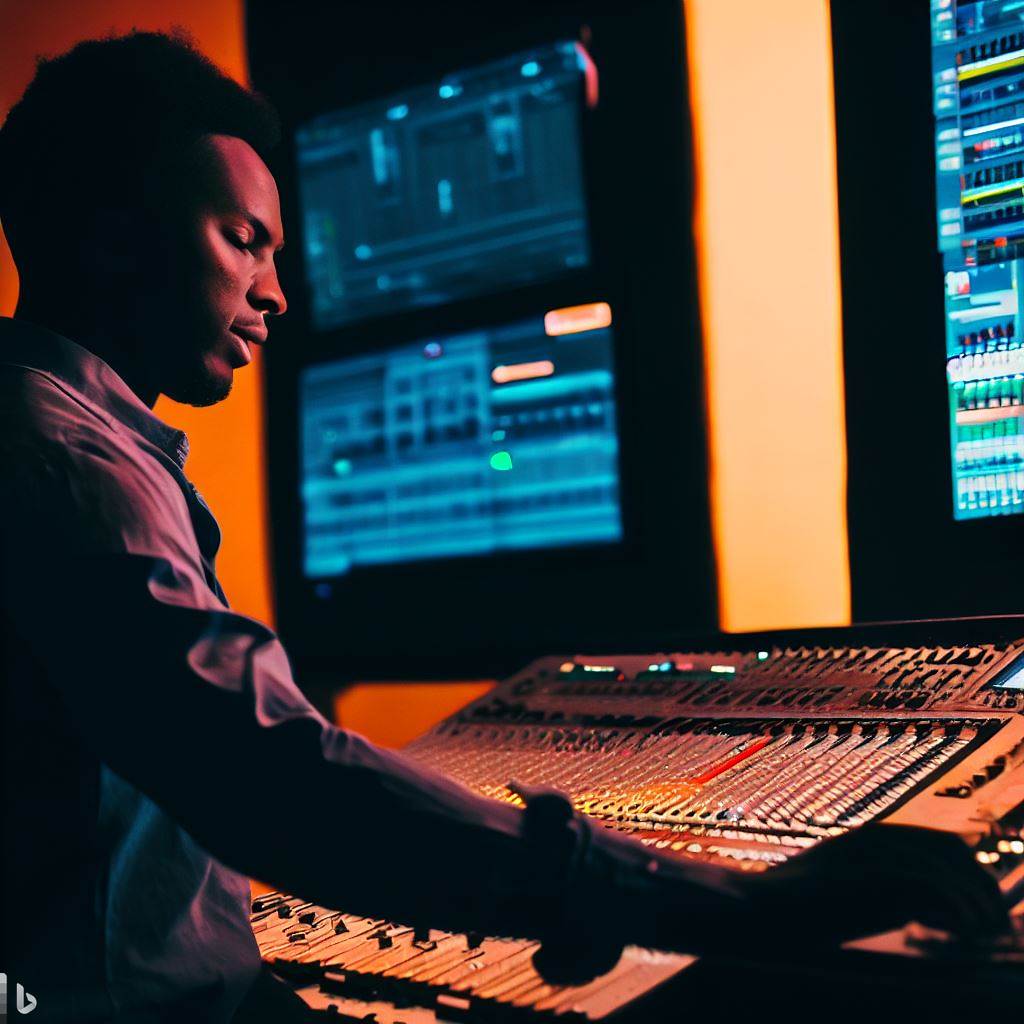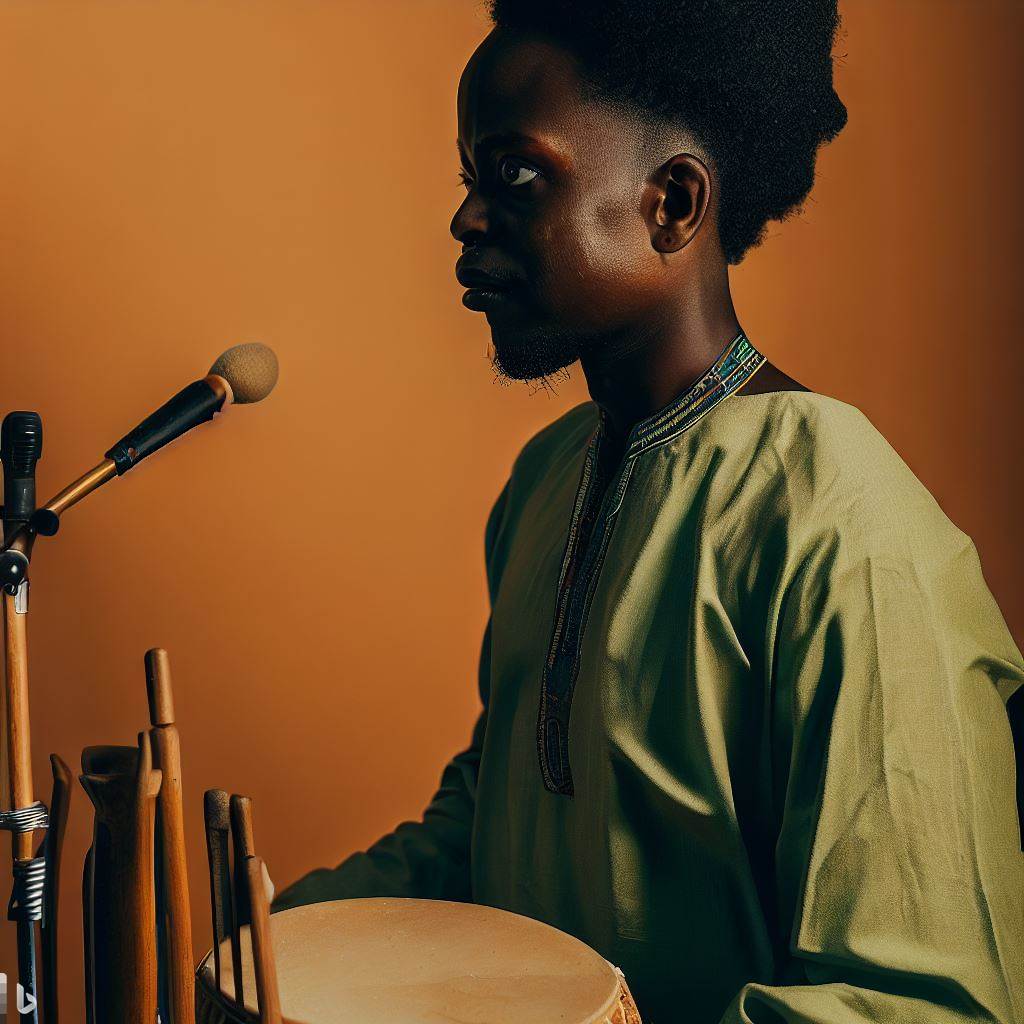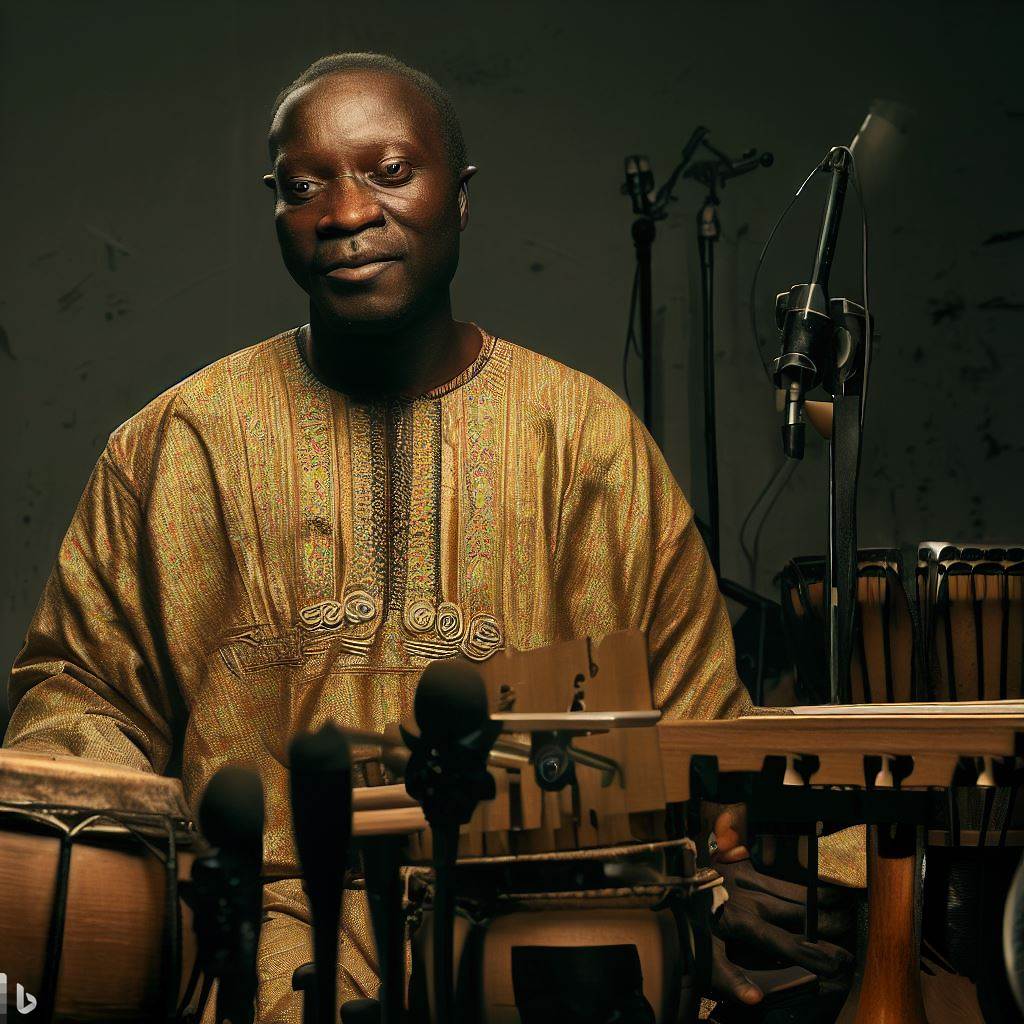Introduction
The sound editing industry in Nigeria is a very interesting one. Understanding the industry’s pulse unlocks opportunities across diverse sectors like filmmaking, music production, and marketing.
To conquer Nigeria’s Sound Editing realm, strategy and comprehension are paramount. Sound manipulation molds films, music, ads.
Skilled sound editors craft auditory landscapes, enhancing storytelling’s impact in movies. They sculpt emotions, intensify suspense.
In the music sphere, sound editing elevates tracks to pinnacles of auditory pleasure. Harmonious symphonies materialize through adept editing.
Advertisements seize attention with pristine audio. Meticulously edited sound effects etch brand messages into consumer memory.
Sound engineers adeptly wield software and hardware, morphing raw audio into polished gems. Their technical finesse amplifies creativity’s potential.
As Nigeria’s entertainment industry burgeons, sound editing’s demand swells. Those versed in its nuances amass influential roles.
Intricate knowledge of acoustics, software proficiency, and artistic flair amalgamate in successful sound editors.
Mastering this auditory artistry opens pathways to captivating auditory experiences, impacting industries profoundly.
Role of Sound Editing in Nigeria
Sound editing plays a crucial role in the Nigerian entertainment industry. The significance of sound in Nigerian movies, music, and other industries cannot be overstated.
Sound editing enhances storytelling and creates a captivating experience for the audience.
Significance of sound in Nigerian movies, music, and other industries
Sound editing is an integral part of the post-production process in Nigeria. It involves manipulating, enhancing, and organizing audio elements to create a desired sound.
Sound editors work closely with directors, producers, and musicians to achieve the desired outcome. They ensure that the audio aligns with the visuals and enhances the overall narrative.
Sound editing professionals in Nigeria are skilled in various software and technologies to deliver high-quality results. They strive to achieve clarity, balance, and coherence in sound design.
Sound brings depth and realism to Nigerian movies, creating a more immersive experience for viewers. It sets the mood, evokes emotions, and creates tension in pivotal scenes.
Music, a vital component of sound, adds an extra layer of storytelling in Nigerian movies. In Nigerian music, sound plays a crucial role in setting the tone and conveying the artist’s message.
Sound is also essential in radio dramas, commercials, and documentaries in Nigeria. Industries such as advertising heavily rely on sound to capture the attention of their target audience.
Enhancing Storytelling and Audience Experience through Sound Editing
- Sound editing helps in guiding the audience’s emotions and attention to specific elements of the story.
- It creates a seamless flow and allows for smoother transitions between scenes.
- The use of sound effects and Foley adds a layer of realism to Nigerian movies and engages the audience.
- Through sound editing, dialogue clarity is improved, ensuring that the audience can understand and follow the story.
- Music, carefully selected and edited, enhances the emotional impact of key moments in Nigerian movies.
- The well-executed sound design keeps the audience engaged and invested in the narrative.
In fact, sound editing plays a vital role in the Nigerian entertainment industry, extending beyond movies to music, commercials, and other sectors.
Through the manipulation and organization of audio elements, sound editors enhance storytelling and create a captivating experience for the audience.
The significance of sound in Nigerian movies and music cannot be overlooked, as it adds depth, emotion, and realism to visual content.
Sound editing professionals in Nigeria strive to achieve clarity, balance, and coherence in their work, ensuring that the audio aligns seamlessly with the visuals.
With the right sound design, Nigerian movies and music become more immersive and engaging, leaving a lasting impact on the audience.
Read: Training Institutes for Sound Editors in Nigeria
Challenges faced by sound editors in Nigeria
The sound editing industry in Nigeria faces numerous challenges that hinder the growth and development of professionals in the field. These challenges include:
1. Lack of proper equipment and technology
Sound editors in Nigeria often struggle with a lack of access to the necessary tools and equipment required for their work.
The limited availability of high-quality microphones, specialized software, and soundproof studios affects the overall quality of sound editing.
2. Limited access to training and education opportunities
Many sound editors in Nigeria lack formal training and education in the field.
This hampers their ability to acquire essential skills and keep up with the latest advancements in sound editing technology and techniques.
The absence of specialized schools and workshops further limits their opportunities for growth.
3. Low recognition and appreciation for the craft
Sound editing is often underappreciated and undervalued in Nigeria.
The industry lacks proper recognition, which reflects in the low remuneration and limited job opportunities available to sound editors.
This discourages aspiring professionals from pursuing a career in sound editing.
In essence, sound editors in Nigeria face challenges such as a lack of proper equipment and technology, limited access to training and education, and low recognition for their craft.
However, they are finding ways to navigate these challenges by building communities, seeking international collaborations, advocating for recognition, and pursuing continuous learning.
Read: Market Demand for Sound Effects Editors in Nigeria
Tips for Aspiring Sound Editors in Nigeria
The sound editing industry in Nigeria is a vibrant and dynamic field that offers numerous opportunities for aspiring sound editors.
In the era of fast-paced technological growth and rising audio expectations, staying updated on cutting-edge sound editing techniques and software is crucial.
To thrive in this industry, individuals must keep abreast of the latest sound editing techniques and software due to tech advancements and high audio standards.
Research and stay updated on the latest sound editing techniques and software
To begin your journey as a sound editor in Nigeria, it is crucial to conduct thorough research and stay constantly updated on the latest trends and advancements in the field.
This can be achieved by reading books, attending workshops, and following online forums and communities dedicated to sound editing.
By keeping yourself informed, you can adapt to the evolving industry and make your skills relevant and competitive.
Network with industry professionals to create opportunities
Networking plays a vital role in creating opportunities and advancing your career in the sound editing industry.
Connect with industry professionals such as sound engineers, music producers, and filmmakers through conferences, seminars, and online platforms.
Building relationships with these individuals can lead to collaborations, referrals, and valuable insights into the industry.
A strong network can open doors to new projects and help you gain recognition in the industry.
Pursue training and certifications to improve skills and knowledge
Investing in training and certifications is another crucial step towards improving your skills and knowledge in sound editing.
Enroll in relevant courses, workshops, or certification programs that focus on sound editing techniques, software, and equipment.
These programs not only enhance your expertise but also validate your proficiency to potential clients and employers.
Continuous learning is essential in staying competitive and evolving with the industry.
Collaborate with other creatives to gain more experience
Collaboration is key in gaining experience and expanding your portfolio as a sound editor.
Work with other creative individuals such as musicians, filmmakers, and producers to create impactful audio content.
Collaborative projects allow you to apply your skills in real-world scenarios, understand different perspectives, and provide you with valuable practical experience.
By working with a variety of professionals, you can broaden your skillset and showcase your versatility.
In short, aspiring sound editors in Nigeria should research and stay updated on the latest sound editing techniques and software.
Network, train, and collaborate for sound editing success: connect, learn, and team up with pros and creatives.
Read: Success Stories: Top Nigerian Sound Effects Editors

Resources and organizations supporting sound editors in Nigeria
Some organizations providing resources and support to sound editors include:
- Nigerian Film Corporation (NFC): The NFC plays a key role in supporting sound editors in the country.
- Nigerian Film and Video Censors Board (NFVCB): The NFVCB provides resources and regulations for sound editing in Nigeria.
- African Film Consortium (AFC): The AFC offers support and networking opportunities for sound editors working in Nigeria.
- Nigerian Sound Editors Guild (NSEG): NSEG is an organization that advocates for the interests of sound editors in Nigeria.
Training institutes and workshops
- Native Filmworks Sound Academy: This academy offers comprehensive training programs for aspiring sound editors.
- Pan-Atlantic University: The university offers courses in sound editing and film production.
- Multimedia Training Institute: This institute provides workshops and training in sound editing techniques.
- National Film Institute: The institute organizes workshops and courses on sound editing for film and television.
Governmental and non-governmental organizations promoting sound editing
- National Film and Video Foundation: The foundation supports the development and promotion of sound editing in Nigeria.
- The Nigerian Government: The government provides funding and resources for the growth of the sound editing industry.
- Nigerian Association of Sound Editors: This non-profit organization works towards promoting the art of sound editing in Nigeria.
- Nigerian Film Corporation: The corporation collaborates with sound editors and supports their professional growth in the industry.
Online platforms and communities for sound editors to connect and share insights
- Sound Editors Nigeria Facebook Group: This online community provides a platform for Nigerian sound editors to share their work and insights.
- LinkedIn Groups: Various groups on LinkedIn, such as “Nigeria Sound Editors Network,” facilitate networking and knowledge-sharing among professionals.
- FilmSound.org: This website offers forums where sound editors can discuss techniques, challenges, and industry trends.
- Nigerian Sound Editors Guild Website: The guild’s website features a member directory and resources for sound editors to connect.
Utilizing the mentioned resources and organizations empowers Nigerian sound editors to boost skills, connect with peers, and navigate confidently.
Read: Impact of Nigerian Culture on Foley Artistry: An Analysis
Success Stories in the Nigerian Sound Editing Industry
Profiles of Successful Sound Editors in Nigeria and their Achievements
- Oluwatosin Adeyemi: With over 10 years of experience, she has won multiple awards for her outstanding sound editing in Nollywood films.
- Jide Ogunsola: Collaborated with top Nigerian musicians, earning him recognition for his contribution to the music industry.
- Chika Chukwu: Received international acclaim for her work in Nigerian documentaries and independent films.
Sharing their Experiences, Challenges Faced, and Navigating the Industry
- Oluwatosin Adeyemi: Started her career as an intern, facing numerous obstacles in a male-dominated industry.
She worked tirelessly to prove her worth and establish herself as a talented sound editor in Nigeria.
She emphasizes the importance of networking and constantly improving one’s skills to stay relevant in the industry. - Jide Ogunsola: shares his journey of starting from scratch and investing in quality equipment to deliver exceptional sound editing.
He faced challenges in convincing artists and filmmakers of the value his services added to their projects.
Through perseverance and a strong portfolio, he built a reputation that led to more opportunities. - Chika Chukwu: recalls her early struggles as a freelancer, dealing with inconsistent work and financial instability.
She advises aspiring sound editors to diversify their skills and explore various genres within the industry.
Chukwu emphasizes the need for patience and perseverance when faced with challenges.
Inspiring and Motivating Aspiring Sound Editors
These success stories highlight the immense potential and opportunities in the Nigerian sound editing industry.
Oluwatosin Adeyemi, Jide Ogunsola, and Chika Chukwu are living proof that with dedication, talent, and a proactive approach, aspiring sound editors can thrive in Nigeria.
The key takeaway from their experiences is the importance of constantly honing one’s craft and staying updated with the latest sound editing techniques and software.
Building a strong network and being open to collaborations can also lead to significant career growth.
For aspiring sound editors, it is crucial to overcome the challenges that come their way and have faith in their abilities.
By learning from the achievements and experiences of these successful professionals, they can navigate the sound editing industry in Nigeria with confidence and determination.
Conclusion
Sound editing plays a crucial role in the Nigerian entertainment industry, enhancing the overall quality and impact of productions.
As Nollywood surges and demand for quality content grows, Nigeria’s sound editing industry holds immense growth potential, beckoning skilled professionals.
Aspiring sound editors should remain persistent, continuously refine their skills, and actively take part in projects to contribute to the industry’s growth in Nigeria.
By embracing the challenges and collaborating with other professionals, sound editors can make a significant impact on the industry’s development.
In closing, sound editing is of utmost importance in Nigeria’s entertainment industry, and its potential for growth and opportunities are immense.
Aspiring sound editors should be inspired to persevere, continuously learn and contribute to the sound editing industry’s development in Nigeria.
By doing so, they can play a vital role in elevating the quality of Nigerian productions and making a lasting impact on the industry as a whole.




